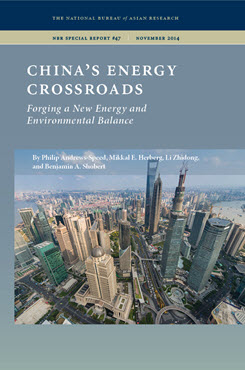The Key Drivers of China's Environmental Policies
This essay examines the key drivers of China’s environmental policies and analyzes how environmental considerations are increasingly shaping China’s decisions on economic, energy, and public health issues.
EXECUTIVE SUMMARY
This essay examines the key drivers of China’s environmental policies and analyzes how environmental considerations are increasingly shaping China’s decisions on economic, energy, and public health issues.
MAIN ARGUMENT
China’s environmental policies historically have been a distant second priority to the country’s pursuit of economic growth. In recent years, however, environmental problems—specifically those that involve air, water, and food supply—have become politically sensitive subjects, inciting growing social unrest and protests. The Chinese government’s response to these problems has been to increasingly invest in a number of strategic renewable energy and clean-technology sectors, most notably clean coal. At the same time, the country has made massive investments in its strained healthcare system. Environmental considerations are also among the key drivers of China’s emphasis on higher-technology manufacturing and service-sector opportunities as part of the twelfth five-year plan. Nonetheless, despite these positive moves, questions remain about China’s ability to adapt its current environmental regulatory system in ways that might constrain key industries during a time when two things are happening: the country’s economic development model is transitioning, and overall economic growth is slowing.
POLICY IMPLICATIONS
- U.S. policymakers should not underestimate the priority that their Chinese counterparts will continue to put on economic matters over all else. In this way, China is likely to continue to resist adopting either energy or pollution standards that are perceived as restrictive to the country’s conventional growth model.
- China’s energy policies are designed to ensure that the country can maintain cost-effective and timely access to key resources such as coal, oil, and natural gas. While the central government has taken great steps to incentivize the development of a renewable energy and clean-technology sector domestically, these priorities reflect economic goals more so than purely environmental priorities.
- The primary vulnerability that China’s environmental damage has created is political and is best seen through the country’s strained healthcare system. This means that China’s healthcare reforms will continue to be a critical measure of how the government believes it can best balance the need to address the damage its economic growth model has caused to people’s health with the political risks attached to shutting down the country’s worst polluters.
Benjamin Shobert is the Founder and Managing Director of the Seattle-based Rubicon Strategy Group and a Senior Associate for International Health at the National Bureau of Asian Research.


